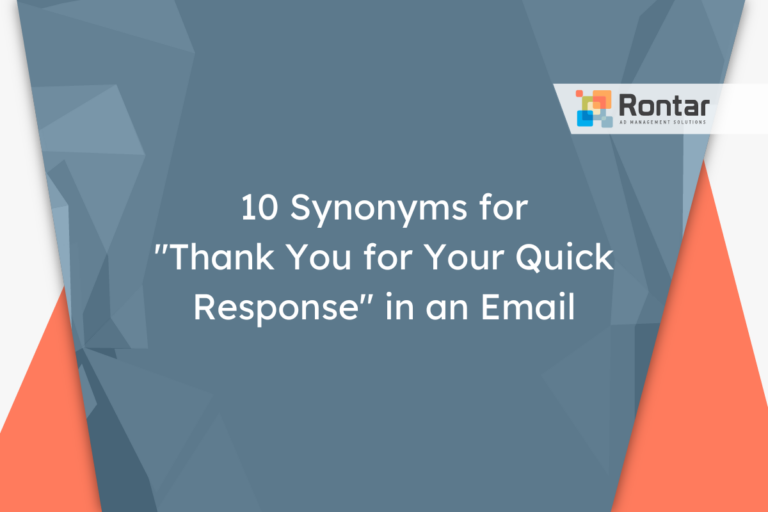14 Other Ways to Say “Please Let Me Know if Otherwise”

Communicating clearly is key, especially in professional settings. Sometimes, we need to ask others to correct us if we’re mistaken or if there’s a better way. The phrase “please let me know if otherwise” is a popular choice, but it’s not the only option.
This article explores 14 alternatives that can make your emails and messages more varied and effective.
Is It Professional to Say “Please Let Me Know if Otherwise”?
The phrase “please let me know if otherwise” is often considered professional, formal, and polite. It’s a respectful way to ask for feedback or a different opinion if someone has one. This phrase can be especially useful in email communication, meetings, or any professional setting where you want to leave room for others to provide their input or correct you if you have made a mistaken assumption.
Typically, you would use this phrase at the end of a statement where you are outlining a plan, understanding, or an expectation, and you want to invite others to offer corrections or alternative views. It helps ensure that everyone is on the same page and invites open communication.
Here is an example of how to use this phrase in an email:
Hi Mark, I hope you’re well. Based on our last meeting, I’ll proceed with finalizing the report by Thursday. Please let me know if otherwise. Best regards, Emily
Pros:
- It communicates openness to feedback.
- It is polite, making it suitable for professional settings.
- Helps prevent misunderstandings by inviting clarification.
Cons:
- It might be seen as overly cautious in situations where decisiveness is valued.
- Could be interpreted as lack of confidence in one’s own understanding or plans.
- Some might find it too formal in less traditional or more casual work environments.
While “please let me know if otherwise” is useful, there may be situations where you want to use an alternative phrase. This might be due to the tone you wish to convey, the relationship you have with the recipient, or simply the desire to vary your language. Depending on the context, a synonym or a more casual alternative might be more fitting.
14 Other Ways to Say “Please Let Me Know if Otherwise”
Here are 14 alternatives to “please let me know if otherwise” that can fit various tones and situations:
- Please advise if otherwise
- Correct me if I’m wrong
- Kindly inform me if not
- Please let me know if you disagree
- Notify me if contrary
- Please tell me if not
- Let me know if you’re opposed
- Please let me know if you’d rather
- Please confirm if you agree
- Please correct me if otherwise
- Please let me know if you think differently
- If not, please let me know
- Let me know if you have a better idea
- Are there any objections?
1. Please advise if otherwise
This alternative is a bit more formal and professional than the original. It’s a great option when you want to sound polished, especially in written communication with someone you might not know very well. This phrase distinctly asks for guidance or corrections, making it clear that you’re open to input.
It’s better suited for emails and messages where clarity is crucial, and you respect the recipient’s expertise and opinion. It’s perfect when you’re somewhat unsure and would appreciate confirmation or advice.
Here’s a sample email:
Hello Dr. Smith, Following our conversation on the project timeline, I've drafted the initial stages to begin next month. Please advise if otherwise. Best regards, Alicia
2. Correct me if I’m wrong
This phrase is somewhat informal and can come off as very polite. It’s an excellent choice for situations where you’re fairly confident about your stance but want to remain open to corrections. This alternative carries a bit of humility and shows that you value the other person’s perspective.
We recommend using this in more casual emails or messages, where you have an established relationship with the recipient. It helps maintain a friendly tone while inviting feedback.
Example email:
Hi Alex, I believe the next budget review is set for Friday. Correct me if I'm wrong. Cheers, Jordan
3. Kindly inform me if not
This synonym is formal and polite, suitable for professional settings where you want to gently ask for input. It’s less direct than simply stating “Please let me know if otherwise,” making it a good choice when addressing higher-ups or clients.
Use this alternative when you need confirmation but want to keep the message tone courteous and respectful. It’s ideal for written communication that requires a soft approach.
Here’s a sample usage in an email:
Dear Ms. Rivera, We're scheduled to move forward with the project plan as discussed. Kindly inform me if not. Warmest regards, Timothy
4. Please let me know if you disagree
This alternative is formal yet invites a direct response, making it suitable for situations where you’re discussing opinions or decisions and want to encourage open disagreement or discussions. It’s a straightforward request for the recipient’s viewpoint, emphasizing your readiness to consider their perspective.
It is better used in professional contexts where you’re seeking explicit confirmation or dissent on specific points, especially when collaborating closely with colleagues or stakeholders.
Here’s how you might use this in an email:
Hello Team, I've outlined the project phases based on our strategy meeting. Please let me know if you disagree with any points. Best, Caroline
5. Notify me if contrary
This phrase is succinct and formal, perfect for professional settings. It suggests that you’re asking for corrections or alternative views in a very concise manner. This phrase is best when you want to keep your message brief yet clear, without needing a lot of additional context.
This alternative is particularly suited for quick, to-the-point communications, where brevity is appreciated but clarity cannot be compromised. It’s ideal for brief emails or notices.
For example:
Dear Colleague, Please see the attached document for the updated guidelines. Notify me if contrary. Regards, Liam
6. Please tell me if not
This alternative is slightly more informal than the original phrase. It’s straightforward and direct, making it a good choice for clear communication. This option works well when you’re fairly certain of your information but want to leave room for corrections or differing opinions.
When clarity is more important than formality, such as in internal team communications or with colleagues you have a close relationship with, this phrase is particularly useful. It encourages openness and honesty without being overly formal.
Here’s an example of how you might use it in an email:
Hi Sam, I've reviewed the project plan and believe we're on track to complete phase one by next Friday. Please tell me if not, so we can adjust our timeline accordingly. Best regards, Alex
7. Let me know if you’re opposed
This phrase is a bit more formal and specific, suggesting that you’re asking for objections to a proposal or idea. It’s polite and implies that you’re open to hearing different viewpoints, making it suitable for professional settings.
It’s best used when you’re proposing an idea or decision and you want to explicitly invite dissenting opinions or objections. This fosters an environment of inclusivity and consideration for others’ perspectives in decision-making processes.
Here’s a sample email:
Hello Team, I propose we move our weekly meetings to Thursday mornings to accommodate other scheduled activities. Let me know if you're opposed to this change. Warm regards, Jordan
8. Please let me know if you’d rather
This alternative is more polite and suggests a higher level of consideration for the recipient’s preferences. It’s useful in situations where options are available, and you want to ensure the other party’s choice is considered.
This phrase is particularly suited for instances where personal preference plays a significant role, such as scheduling meetings or choosing methods for completing a task. It communicates respect for the recipient’s opinion and flexibility in planning.
Below is an example message:
Hi Michelle, We're scheduling the next project review session and were thinking of doing it on Wednesday at 3 PM. Please let me know if you'd rather have it at a different time. Sincerely, Elijah
9. Please confirm if you agree
This phrase is formal and direct, making it ideal for situations where confirmation of agreement is necessary. It’s especially useful in email communications that involve decisions or agreements that need clear documentation.
When you need explicit confirmation to proceed with tasks or decisions, especially in a professional setting, this alternative is highly appropriate. It helps ensure that all parties are on the same page and that there’s a record of agreement.
Example:
Dear Committee Members, Following our discussion, I've drafted the final version of the policy change. Please confirm if you agree with its contents so we can move forward with implementation. Best, Renee
10. Please correct me if otherwise
This option is both polite and formal, implying that you are open to being corrected if your understanding or information is incorrect. It’s a humble approach that shows respect for the recipient’s knowledge and perspective.
It’s particularly useful in situations where you’re not completely certain about your information or when discussing complex topics that might have multiple interpretations. This phrase encourages a collaborative approach to ensuring accuracy and understanding.
An example email using this phrase:
Dear Professor Thompson, Based on the syllabus, I believe our next assignment is due on the 15th. Please correct me if otherwise. Thank you, Jamie
11. Please let me know if you think differently
This phrase is more informal and conversational, ideal for encouraging open dialogue and sharing of perspectives. It suggests a genuine interest in the recipient’s thoughts and opinions.
This alternative is better suited for discussions where you’re seeking input or feedback, or when brainstorming ideas. It creates an environment that values diverse opinions and collaborative problem-solving.
Sample email:
Hi Alex, I've outlined a preliminary plan for the marketing campaign, which I believe covers all our bases. Please let me know if you think differently, as I value your insight. Kindly, Jordan
12. If not, please let me know
This version is succinct and informal, suitable for quick communications where you want to confirm something but don’t need to be overly formal. It’s direct and assumes that the default scenario is correct, but still leaves room for correction.
When time is of the essence or in less formal email exchanges, this phrase efficiently conveys your openness to alternative views or corrections without much preamble. It’s particularly effective in internal communications within teams.
Example:
Hi Team, I've booked the conference room for our meeting at 10 AM tomorrow. If not, please let me know. Cheers, Liam
13. Let me know if you have a better idea
This alternative is both informal and engaging. It encourages creative input and suggests a flexible approach to problem-solving. It’s great for brainstorming sessions or when seeking innovative solutions.
This phrase is ideal when you’re working on projects that benefit from team input and collaboration. It signals that you’re not only open to suggestions but actively seeking them, fostering a collaborative team environment.
Here’s how you might use it in an email:
Hi Creative Team, We're planning the layout for the new website and have a few ideas. Let me know if you have a better idea; we're looking for fresh perspectives. Thanks, Sofia
14. Are there any objections?
This is a more formal and concise way to invite feedback or dissent. It’s particularly effective in meetings or group emails where decisions are being made, and you want to ensure everyone’s voice is heard.
This phrase is best suited for formal discussions or decision-making processes where unanimous agreement is important or where dissenting opinions must be acknowledged before proceeding. It promotes transparency and inclusiveness.
An example of an email using this approach:
Dear Board Members, We have reached a consensus on the new policy direction during our last meeting. Are there any objections? Please speak now so we can address any concerns. Best wishes, Diane
Final Thoughts
It is important to choose the right way to ask for feedback or corrections. The alternatives provided here offer different tones, from formal to casual, depending on your situation and who you’re talking to. Experiment with these options in your emails and messages to find what works best for you and your professional relationships.






